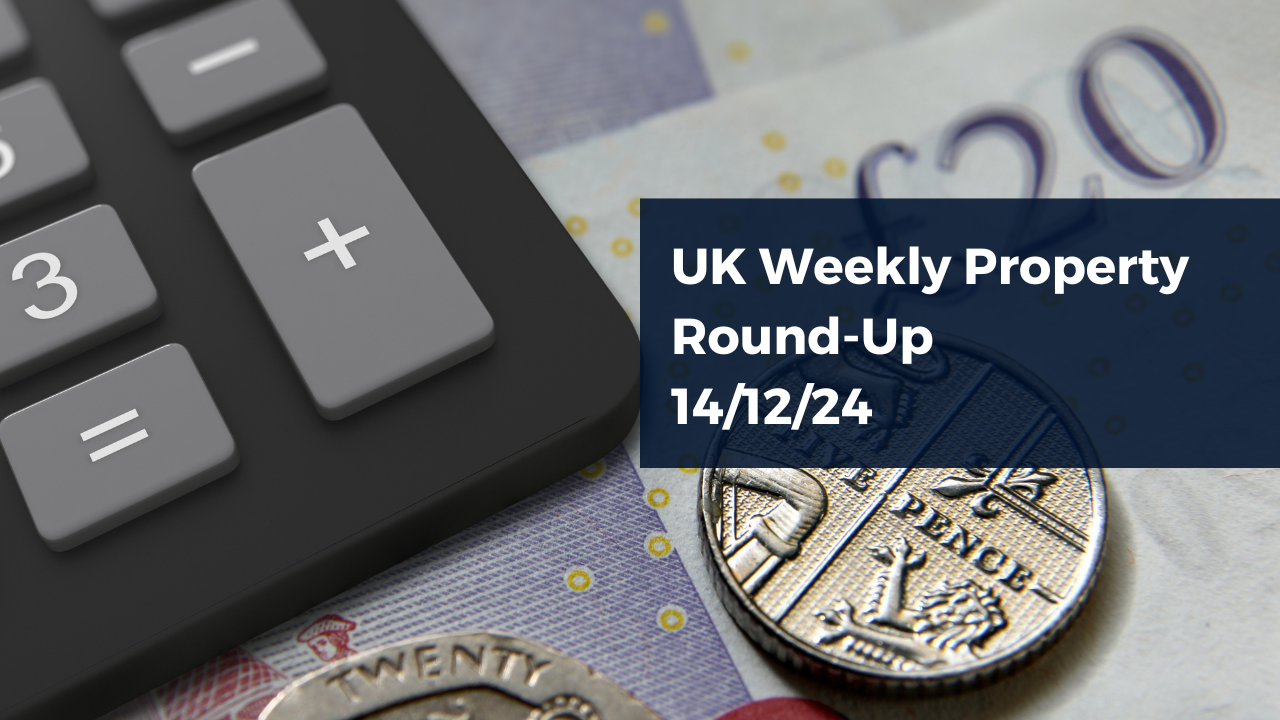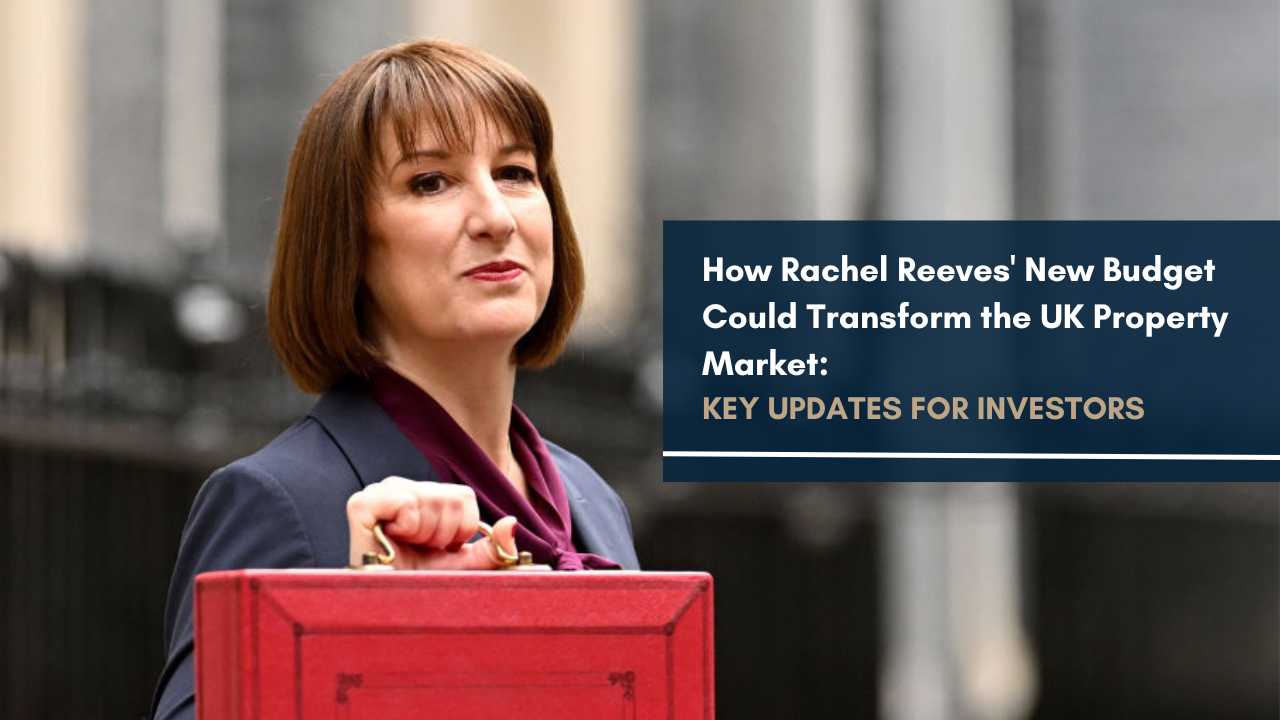Investing £500k in property is serious business. Whether you’ve managed to amass this level of wealth through savings, business, inheritance or otherwise, you’re in a fantastic position to put that money to work in the property market and use it to generate a steady income.
One of the biggest challenges with this amount of capital is knowing where to start. A £500k budget is an exciting prospect that opens up a huge range of opportunities, yet it can also be daunting for those that don’t have experience in the market. That’s why it’s so important to weigh up your options and make sure you’re following a path that matches your long-term goals and risk tolerance.
Chances are you’ll already be considering various options in terms of the stock market, high-yield savings accounts, index funds, exchange-traded funds and other elements that form part of a well-rounded investment strategy. Property is a worthy addition to any investment portfolio that comes with its own set of financial benefits and the potential to generate a high return on investment year after year.
While we always recommend getting in touch with an experienced financial advisor to discuss your personal goals, this guide will provide you with a useful starting point if you wish to get an idea of the key steps involved with investing £500k in property.
Why Property?
Investing in property is one of the age-old pieces of wisdom passed down from generation to generation. Though it may seem like common sense for that very fact, it’s still important to be aware of the specific advantages that come with developing a high-value property portfolio:
- Capital Appreciation – While there are no guarantees, property values tend to grow over time, and many locations and markets have a proven track record of long-term capital appreciation. Rising values provide investors with the opportunity to build equity and generate significant returns on their initial investment, and that’s simply a result of owning the property for a long enough period of time.
- Source of Income – Property investment can provide a steady stream of relatively passive income for owners who choose to rent out their property to tenants. The cash flow generated through rental payments can be used to cover the cost of mortgage payments and property maintenance or can be used to fund further investment in other properties.
- Leverage – Property allows investors to take advantage of leverage, meaning they can purchase a house with a combination of their own capital and borrowed funds, such as a mortgage. This leverage amplifies the potential returns on investment. If property values increase, the investor’s equity in the property can grow significantly, even if they initially invested only a portion of the property’s total value.
- Hedge Against Inflation – Many investors look at real estate investing as a good way to mitigate the impact of inflation and fluctuations in interest rates. Property market prices and rental incomes have historically shown the potential to increase alongside inflation, which enables investors to protect their wealth and maintain the value of their assets over time. This is not always the case with other forms of investment, even those that claim to help mitigate inflation such as treasury inflation-protected securities or a high-yield savings account.
Breaking Down Your Budget
Working with a budget of £500k, we would generally recommend that an investor aims to split their investment between 3-4 properties in good locations that are slightly above the average house price in that area. This will enable them to put down a deposit of roughly 30% on each one and make the most of their leveraging and mortgaging options.
However this strategy is not set in stone and the amount and value of properties in question will naturally depend on a number of factors such as personal goals, financial situation, access to funding and their level of involvement in developing the properties.
Location, Location, Location
Location is a crucial factor when determining your best options for property investment, especially with such a large sum of capital at your disposal. We often advise our clients to look at investing in 2-3 different locations in order to benefit from a more diversified portfolio, though again this isn’t always the case.
Rental demand, rental yield, local amenities, quality of infrastructure and plans for development and regeneration are all key factors that determine how primed a location is for property investment. As you’d expect, cities generally provide more opportunities compared with small towns and rural locations; however, the key thing is getting a strong understanding of different areas to be able to compare and contrast suitability based on your objectives.
Beyond the UK, we often help plan investments in lucrative property markets abroad. Dubai is a perfect example of a city that offers superb opportunities for both local and international investors alike. The tax advantages and ability to avoid personal income tax, capital gains taxes and property taxes on most residential properties can be hugely beneficial for those looking to invest in Dubai’s real estate market.
Types of Property
Are you planning to rent out your property to families or students? Or would you prefer more short-term or holiday letting, such as through Airbnb? Do you plan to play an active role in rental properties as the landlord, or will you source out the responsibility to a specialist property management company?
These are essential questions to answer in order to develop a clear vision of the type of property you are looking for and the level of rental income you can expect to gain. It all depends on your strategy and expectations.
Working with a budget of £500k, it’s a good idea to invest in a mixture of off-plan, close-to-complete and already-completed properties because this gives you varied timeframes and returns from rent and capital appreciation.
How Can a Property Investment Specialist Help?
One of the major benefits of working with a property investment company is that they have access to far more properties than the general public. For instance, most off-plan homes are not marketed at all through retail websites such as Rightmove or Zoopla.
Many housing developers choose to only partner with property investment companies that they can trust to provide high-quality, reliable landlords. The property investment industry is built on relationships, far more so than retail house purchases. Investment companies work hard to cultivate long-lasting relationships with developers, and having them represent you is a major advantage when trying to secure your ideal property.
This gives investment companies strong negotiation power. They can lean on their relationships to achieve heavily discounted prices due to the stream of regular buyers they introduce. Without the backing of an investment company, individuals will struggle to achieve the same discounts. As well as these heavily discounted prices, investment companies can negotiate bonuses such as stamp duty contributions and furniture packages.
Finally, it can take years for the average investor to develop a detailed understanding of the real estate market, particularly when comparing different locations and staying on the pulse of emerging trends. The expertise offered by a property investment specialist is invaluable for investors that don’t live in the same city or country, and working with an experienced team will ensure you invest your capital wisely.
They can also give you access to vehicles such as real estate investment trusts and talk through the forecasted impact on your inheritance tax planning, retirement accounts and personal savings allowance.
£500k Property Investment – Recap
- An investment budget of £500,000 should be split between multiple properties in different locations, ideally with high rental demand and strong annual yields in terms of rent and capital appreciation.
- This level of investment gives investors greater access to lucrative overseas property markets with unique tax allowances, such as Dubai.
- We would recommend diversifying your investment portfolio between off-plan and completed properties, each of which comes with its own benefits and timeframes for ROI.
- Working with a property investment company and/or financial advisor will allow for discounted rates and access to properties not advertised online. Use this to your advantage to secure the best possible deal and maximise your returns.
- As your initial properties appreciate in value, use the equity earned as the deposit for your next buy-to-let investment. Then, keep repeating this method to continue growing your portfolio over time.
Looking for more property investment advice?
Get in touch with our friendly team today to discuss your situation and start laying out a plan to secure maximum return on investment. Feel free to contact us using the form below.
Dive Deeper
How To Invest £50,000 In Property


































